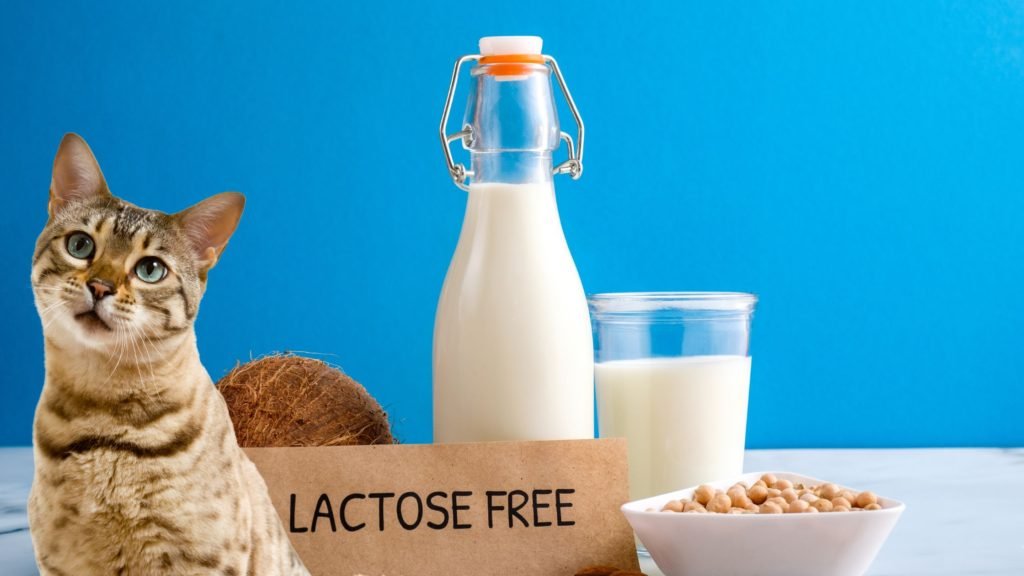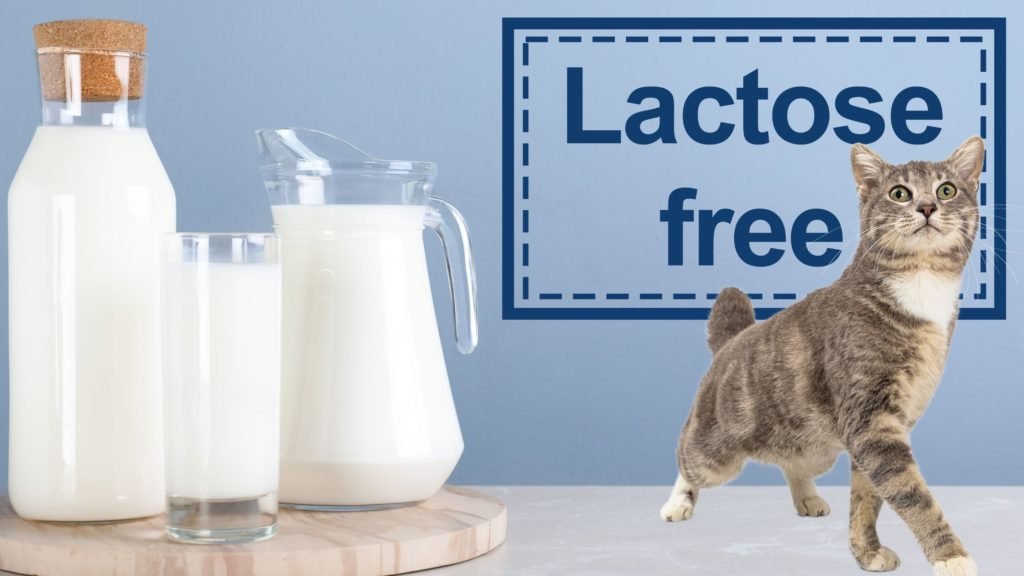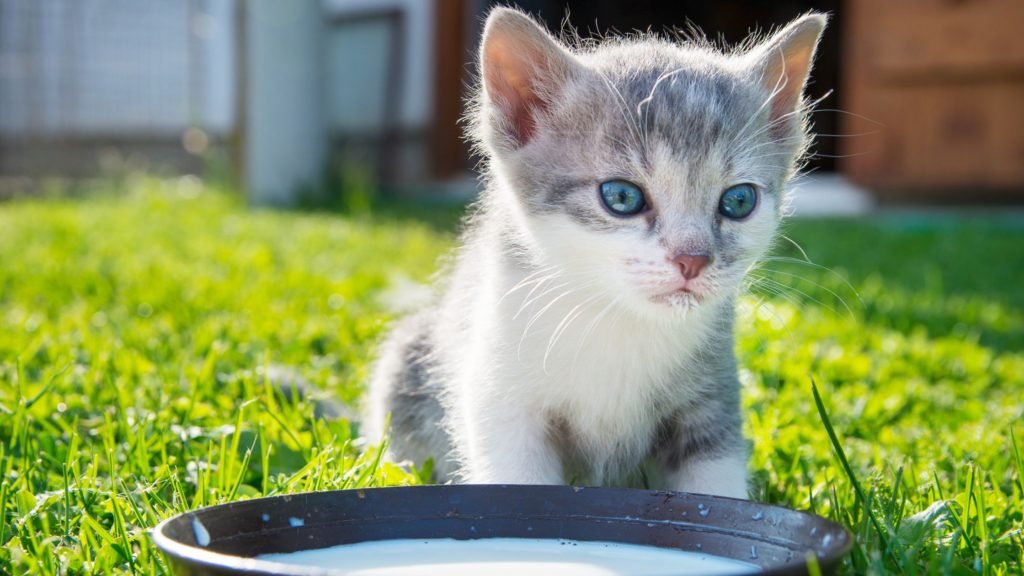Hey, cat lover!
Ever asked yourself, “Can cats drink lactose free milk?” You’re not alone! Let’s dive into this fascinating topic and determine if it’s a good option for our feline friends.
Our whiskered pals have unique dietary needs. It’s essential to know what they can and can’t eat. Lactose intolerance in cats is more common than you think. Their tiny tummies can’t break down lactose due to a lack of lactase enzymes. Feeding them regular milk can lead to an upset stomach, diarrhea, or worse.
Now, let’s get to the point. Can lactose-free milk save the day? Stick around, and we’ll find out together!
Cats and Lactose Intolerance: What's the Deal?
Ever wondered why our feline friends can’t enjoy milk as we do? It’s time to unveil the mystery surrounding cats and lactose intolerance.
Lactase Enzymes: The Unsung Heroes
First things first, let’s talk about lactase enzymes. These little warriors help humans digest lactose, the sugar found in milk. In cats, however, these enzymes are less abundant. As kittens grow older, their ability to produce lactase diminishes, making it harder to break down lactose. That’s why your adult kitty might not be able to tolerate milk as it did during its kittenhood.
Cats + Lactose: A Tricky Combo
Lactose intolerance in cats is more common than you’d think. Due to their limited lactase supply, they struggle to digest lactose properly. Symptoms of lactose intolerance in cats include bloating, gas, diarrhea, and vomiting. If your kitty shows any of these signs after consuming dairy products, it’s time to reconsider its diet.
Regular Milk: A Feline Faux Pas
Feeding your cat regular milk may seem harmless but it can lead to serious tummy troubles. Besides causing discomfort, regular milk can lead to dehydration and malnutrition in lactose-intolerant cats.
So, what’s the solution?
Finding a safe and nutritious alternative that satisfies your cat’s taste buds while keeping its health in check is essential. Stay tuned to learn more about lactose-free milk and other options that might be perfect for your feline friend!
Lactose-Free Milk: A Kitty's Dream Come True?

Lactose-Free Magic: How It’s Made
Milk with Lactose-free is a game-changer! But how is it made? The process involves breaking down lactose into two simpler sugars—glucose and galactose—using lactase enzymes. This transformation makes it easier for lactose-intolerant individuals (and maybe cats) to digest.
Lactose-Free Milk: A World of Options
The market offers a variety of lactose-free milk options. There’s something for everyone, from cow’s milk alternatives to plant-based options like almond, soy, or oat milk. But remember, not all options are suitable for cats. It’s essential to do your research before making a choice.
Nutritional Showdown: Regular vs. Lactose-Free
Is lactose-free milk nutritionally different from regular milk? In terms of vitamins and minerals, they’re quite similar. However, lactose-free milk is slightly sweeter due to glucose and galactose.
But does this make it a safe option for cats?
Please keep reading to discover lactose-free milk’s benefits and potential risks for our feline companions!
Lactose-Free Milk: A Cat's Meow of Benefits?
Lactose-Free Love: Tackling Intolerance
Milk with Lactose-free addresses lactose intolerance head-on. Thanks to the lactase enzymes, lactose is broken down, making digestion easier. That could be music to your cat’s ears, as it can finally enjoy a dairy treat without an upset stomach!
Digestion Delight: A Happier Kitty
Improved digestion is a significant perk of lactose-free milk. When cats can digest their treats, they’ll experience reduced gastrointestinal issues like bloating, gas, and diarrhea. The result? A happier, healthier feline friend!
Hydration & Nutrients: An Extra Boost
Lactose-free milk helps maintain hydration and provides additional nutrients like calcium, vitamins, and minerals. But remember, moderation is key. While it can be a tasty treat, it shouldn’t replace a balanced diet tailored to your cat’s needs.
So, is lactose-free milk the solution to your cat’s lactose intolerance?
Before you pour that bowl, it’s essential to understand potential risks and expert recommendations. Stay tuned for more insights!
You May Also Interest: Can Cats Eat Applesauce? Hidden Truths of Feline Dietary
Lactose-Free Milk: Safety First for Feline Friends

Lactose-Free vs. Cat-Specific Milk: What’s the Difference?
While lactose-free milk solves the lactose issue, it’s not specifically designed for cats. Cat-specific milk, on the other hand, is formulated to meet your kitty’s unique dietary requirements. Knowing the difference is crucial for making an informed choice.
Catering to Cats: Nutritional Needs
Cats are obligate carnivores, meaning they need meat-based protein and essential nutrients found in animal products. While treats like lactose-free milk can be enjoyable, they shouldn’t replace a well-rounded diet tailored to your cat’s needs.
The Flip Side: Risks of Lactose-Free Milk
Despite its benefits, lactose-free milk carries potential risks. Some cats might still experience adverse reactions, and plant-based alternatives could be too high in carbohydrates. It’s essential to consult your vet before introducing lactose-free milk to your cat’s diet.
You May Also Interest: Is Wet Food Bad For Cats Teeth?: Discover The Truth
Lactose-Free Milk: Recommendations for Kitty Care
Perfect Timing: Introducing Lactose-Free Milk
The best time to introduce lactose-free milk to your cat’s diet is after consulting your veterinarian. They’ll evaluate your cat’s health, dietary needs, and potential allergies, ensuring a smooth transition to a new treat.
Portion Control: Serving Sizes & Frequency
Less is more when it comes to lactose-free milk. A small amount (1-2 tablespoons) as an occasional treat is ideal. Be mindful not to overdo it, as too much can lead to weight gain or nutrient imbalances.
Mix It Up: Alternative Treats & Supplements
Lactose-free milk isn’t the only option for pampering your kitty! Consider cat-specific milk, freeze-dried meat treats, or dental chews. Supplements like probiotics or omega-3 fatty acids can also be beneficial for an extra health boost.

